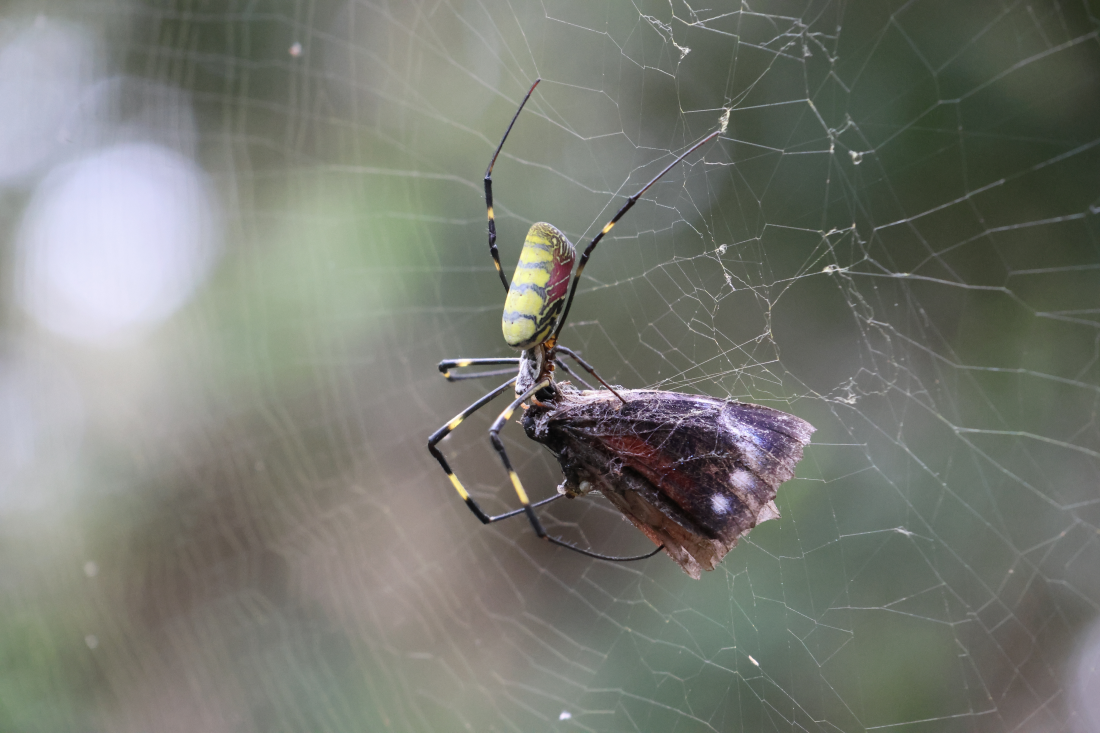A whopping great spider of an invasive species is believed to be on its way to New York, which is bad news for arachnophobes but really not that big of a deal for everybody else. The joro spider is a regular in the news for its United States tour, but despite its impressive size, it’s not dangerous and actually very shy.
Who is the joro spider?
Spiderlings of the orb-weaving joro spider (Trichonephila clavata) can parachute, enabling individuals to travel miles across the country. As Gothamist explained, northward winds could now be carrying them as far as New York, but if you’re an arachnophobe living in the big city, we’ve got good news.
Joro spider size may be impressive, but they’re not dangerous. They have a legspan of up to 10 centimeters (4 inches) and bright coloration that advertises their venom to would-be predators who are small enough for it to be effective. Like other spiders they’d sooner not waste that venom on something as big as a human, but if you get a joro spider bite it’s been compared to a weak bee sting.
Joro spider vs. turkey baster
Aggression was put forward as an explanation for the joro spider’s success as an invasive species, but a curious experiment proved that this wasn’t the case. By puffing air on around 50 spiders with a turkey baster, scientists elicited a threat response known as thanatosis – which is basically freezing – to see how long it lasted across species.

The joro spider bite has been compared to the pain of a bee sting for humans, but it’s deadly to smaller creatures.
Image credit: XIANLONG / Shutterstock.com
In most spiders, thanatosis was short-lived and they started moving again after a minute or so. The reticent joro spider, however, stayed completely still for over an hour after facing down the turkey baster. The only spider known to have a similarly long thanatosis response is the golden silk spider, which sits alongside the joro spider in the Trichonephila genus.
So, if you’re an arachnophobe living in the big city, don’t let fear get in the way of enjoying the summer. Should you find a wayward joro spider wandering through your house, one puff of a turkey baster can buy you a whole hour.
Why is the joro spider such a successful invader?
As for why such a spineless invertebrate has done so well as an invasive species, their physiology may hold the key. An investigation into the success of the joro spider outside of Asia revealed they have physiological characteristics that make them better able to survive cold weather compared to other invasive spider species. That includes an inherently higher metabolism that’s twice that of invasive golden silk spiders, and a heart rate that remains 77 percent higher in cold temperatures.
With their ballooning babies already taking to the skies, it may be time for US citizens to get comfortable with the joro spider as a neighbor. As Andy Davis from the Odum School of Ecology at the University of Georgia said, resistance is futile.
“People should try to learn to live with them. If they’re literally in your way, I can see taking a web down and moving them to the side, but they’re just going to be back next year.”
Source Link: How To Survive The Massive Spider Invasion That’s Headed For New York